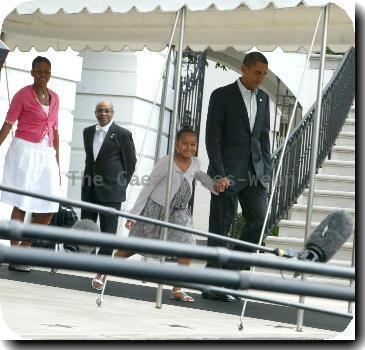Dollar falls briefly against the yen but rallies against euro in wake of Dubai debt crisis
By Martin Crutsinger, APFriday, November 27, 2009
Dollar touches low against yen amid Dubai crisis
WASHINGTON — The dollar fell briefly to its lowest level in 14 years against the Japanese yen Friday but rallied against the euro and other currencies as Dubai’s debt problems roiled currency markets.
Analysts said they expected the dollar’s recent strengthening against some major currencies to be short-lived. They noted the immense borrowing needs of the U.S. government, which relies heavily on foreigners to finance budget deficits exceeding $1.4 trillion annually.
Further declines in the dollar would help boost U.S. exports on global markets. But they won’t bolster the confidence of foreign investors who are needed to buy billions in federal government debt.
The dollar briefly fell below 85 yen early Friday for the first time since July 1995 even as the U.S. currency was strengthening a bit against the euro. Economists saw both moves as a flight to safety as investors reacted with concern to the Dubai debt crisis.
In late-afternoon trading in New York, the euro was down 0.4 percent against the dollar, with $1.4954 required to buy one euro.
The dollar managed to rise 0.2 percent on the day against the yen to trade at 86.70 yen. The dollar earlier touched 84.81 yen — its lowest level since July 1995.
Traders sought the sanctuary of both the dollar and the Japanese currency after Dubai World, a government investment fund with debts totaling around $60 billion, asked creditors to postpone payments until May.
The fear in Japanese economic circles is that the surging yen will strangle the fledgling Japanese economic recovery by pricing out the country’s exports. It could also further stoke deflationary pressures in an economy that’s suffered falling prices for the much of the past decade.
Japanese Finance Minister Hirohisa Fujii called the yen’s surge “a very serious situation.” He added that Tokyo will take action as needed, suggesting that Japan may work with the U.S. and Europe to try to calm foreign exchange markets.
“I am monitoring the situation very carefully,” Fujii said at a news conference.
Treasury officials in Washington remained silent Friday on the dollar’s movements. The Obama administration’s public stance is that a strong dollar benefits the United States. Yet the administration has done nothing to stem the dollar’s slide since it reached its 2009 peak in March.
In fact, on his recent trip to China, President Barack Obama kept up pressure on the Chinese government to resume allowing its currency to rise in value against the dollar. Doing so would help narrow America’s huge trade deficit with China by making American goods cheaper for Chinese consumers and Chinese products more expensive in the United States.
Many analysts say the Chinese will start letting the yuan rise in value in coming months, once they are more assured of a sustainable recovery in China. They also say the long-term trend for the U.S. currency is to go lower, given the government’s need to keep borrowing to finance budget deficits.
“Various short-term crises such as the Dubai debt situation and a looming problem with debt in Eastern Europe may temporarily help to strengthen the dollar against other currencies, but in the long run the dollar has to depreciate,” said Sung Won Sohn, an economist with the Martin Smith School of Business at California State University.
This trend would cause concern for investors buying U.S. Treasury securities. But a weaker dollar would help boost U.S. exports, benefit American manufacturers and reduce the trade gap.
“The weaker dollar is already helping narrow our trade deficit, and it will help more in coming years,” Sohn said.
Still, the trend spells trouble for countries such as Japan that are heavily dependent on export-led growth.
Japan’s business executives are worried about the yen’s appreciation, which comes at a time of falling prices in Japan and weak consumer spending. Fujio Mitarai, chairman of Keidanren, Japan’s largest business lobby, urged the government to take action.
“In the midst of deflation, such a sharp rise in the yen is a very serious problem and could drag down the economy,” Mitarai told reporters.
Tokyo’s threat of intervention was enough to stem the yen’s rise — for now.
“Warnings from various Japanese policy makers stabilized price action,” said Hans Redeker, global head of foreign exchange strategy at BNP Paribas.
But traders aren’t convinced that the Bank of Japan will wade into the markets by selling yen to buy dollars, something it hasn’t done since March 2004.
Intervention can’t be ruled out. But some analysts wonder what can be achieved if the dollar continues to pay out minimal returns. There’s no sign the Federal Reserve has any plans to raise the target for its bank lending rate from the current record-low range of between zero and 0.25 percent.
More significant would be a decision by Chinese monetary authorities to let their currency appreciate against the dollar. The yuan is artificially set to the dollar by Chinese authorities to keep their exports cheap in U.S. markets.
As a result, investors will be monitoring this weekend’s meeting between European Central Bank officials, including its president Jean-Claude Trichet, and Chinese authorities.
“Japanese officials will be watching closely to see if the Europeans can draw any further reassurances from the Chinese government over a move towards a revaluation in the yuan,” said Jane Foley, research director at Forex.com.
Associated Press Writers Pan Pylas, Malcolm Foster, Yuri Kageyama and Tomoko A. Hosaka contributed to this report.
Tags: Asia, Barack Obama, China, Dollar, Dubai, East Asia, Greater China, International Trade, Japan, Middle East, North America, Prices, Tokyo, United Arab Emirates, United States, Washington

